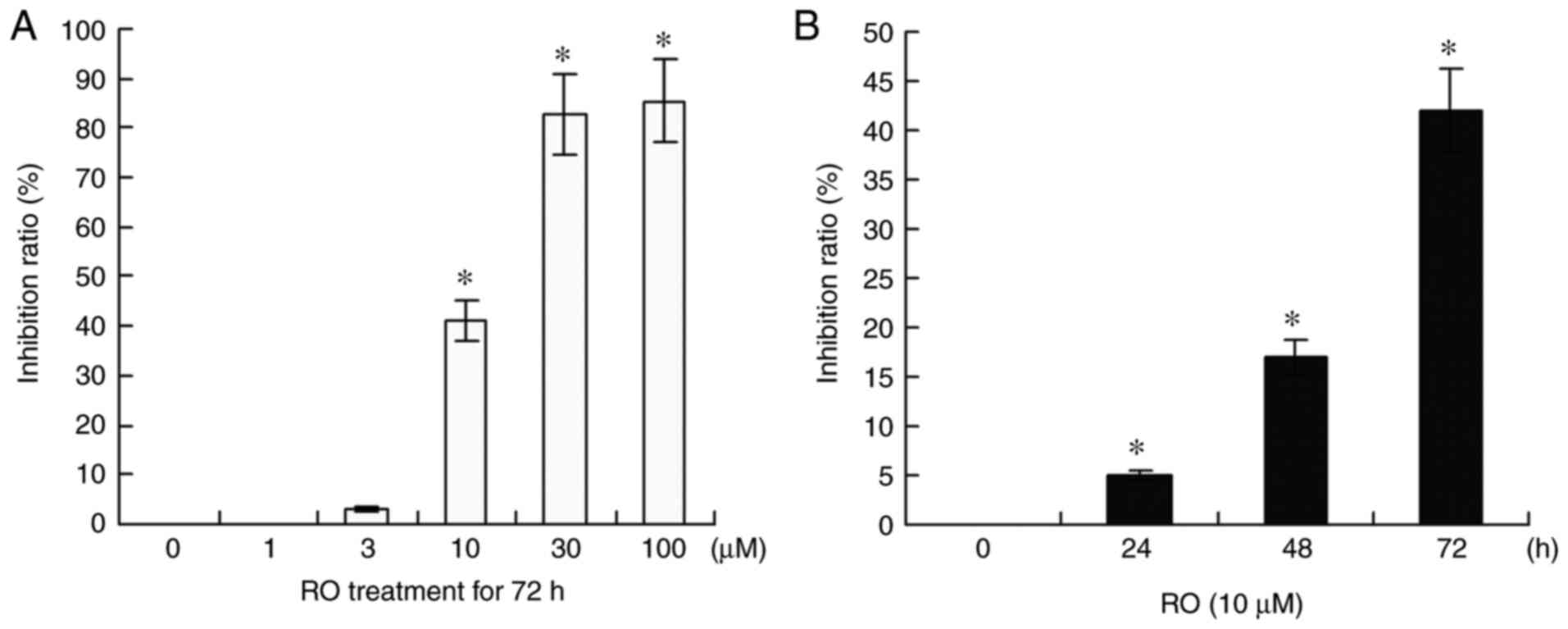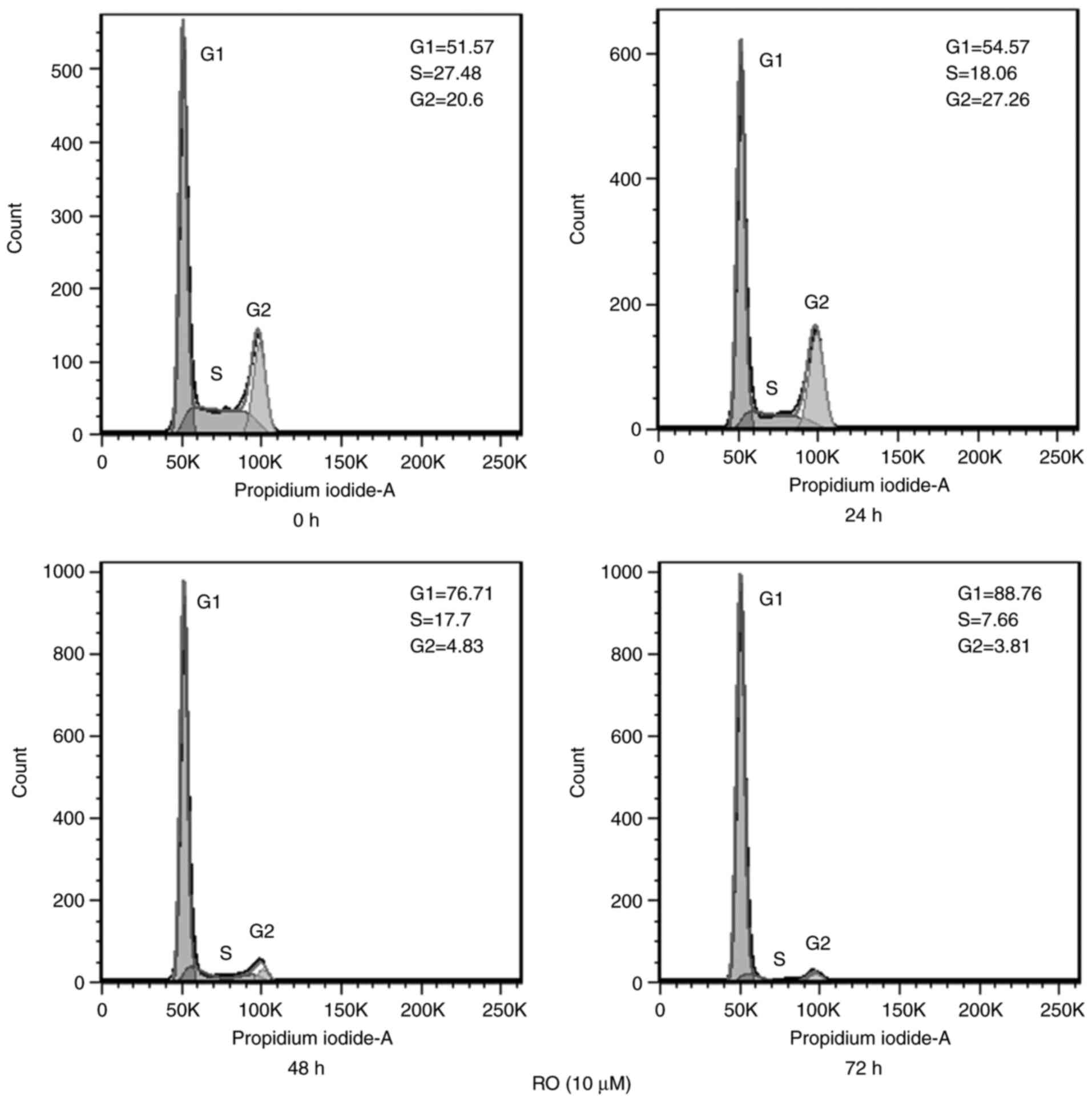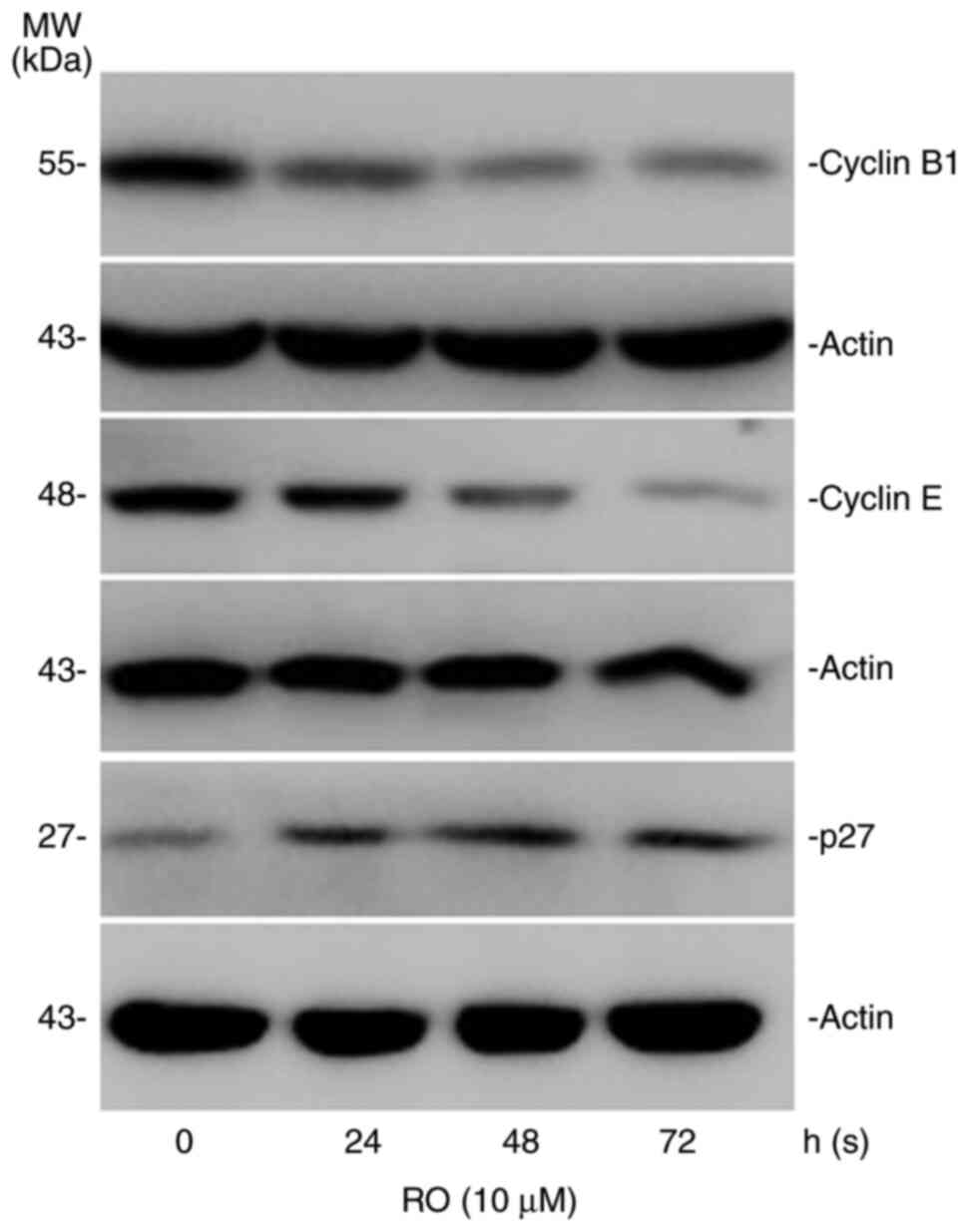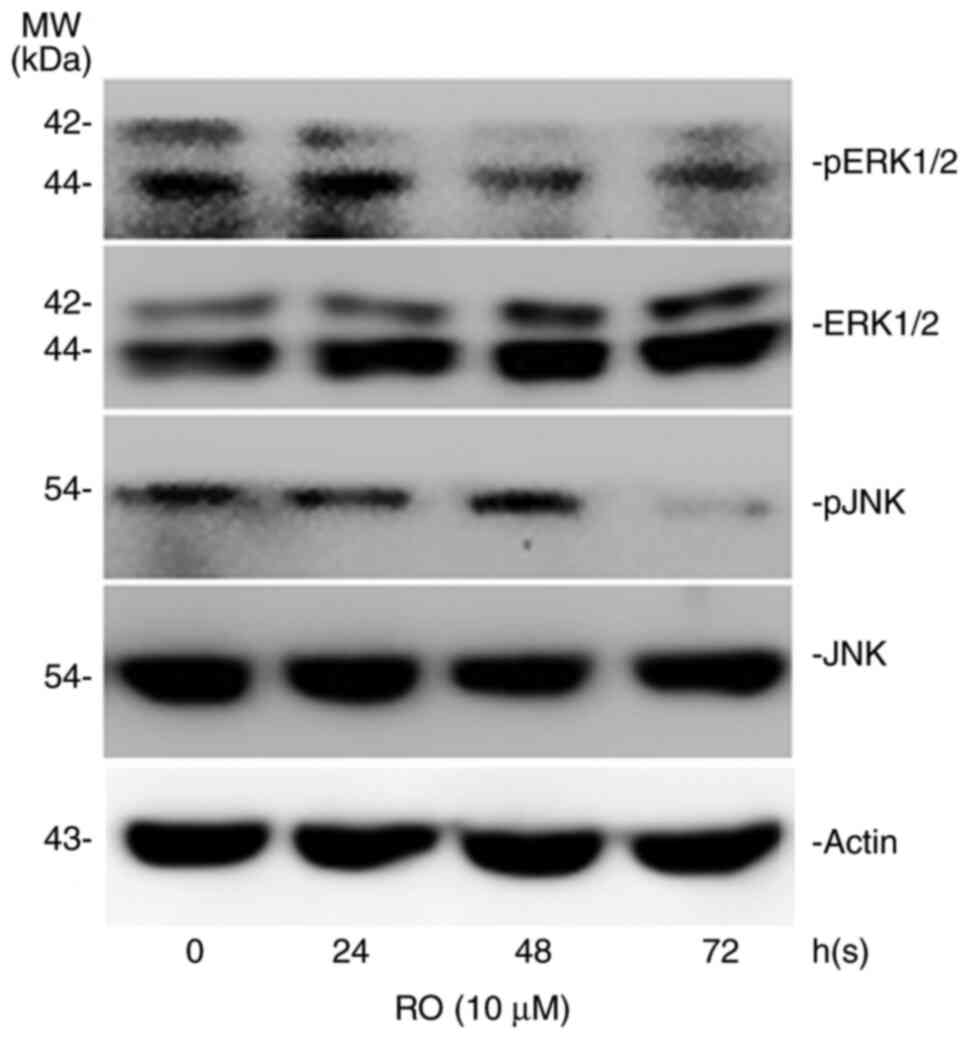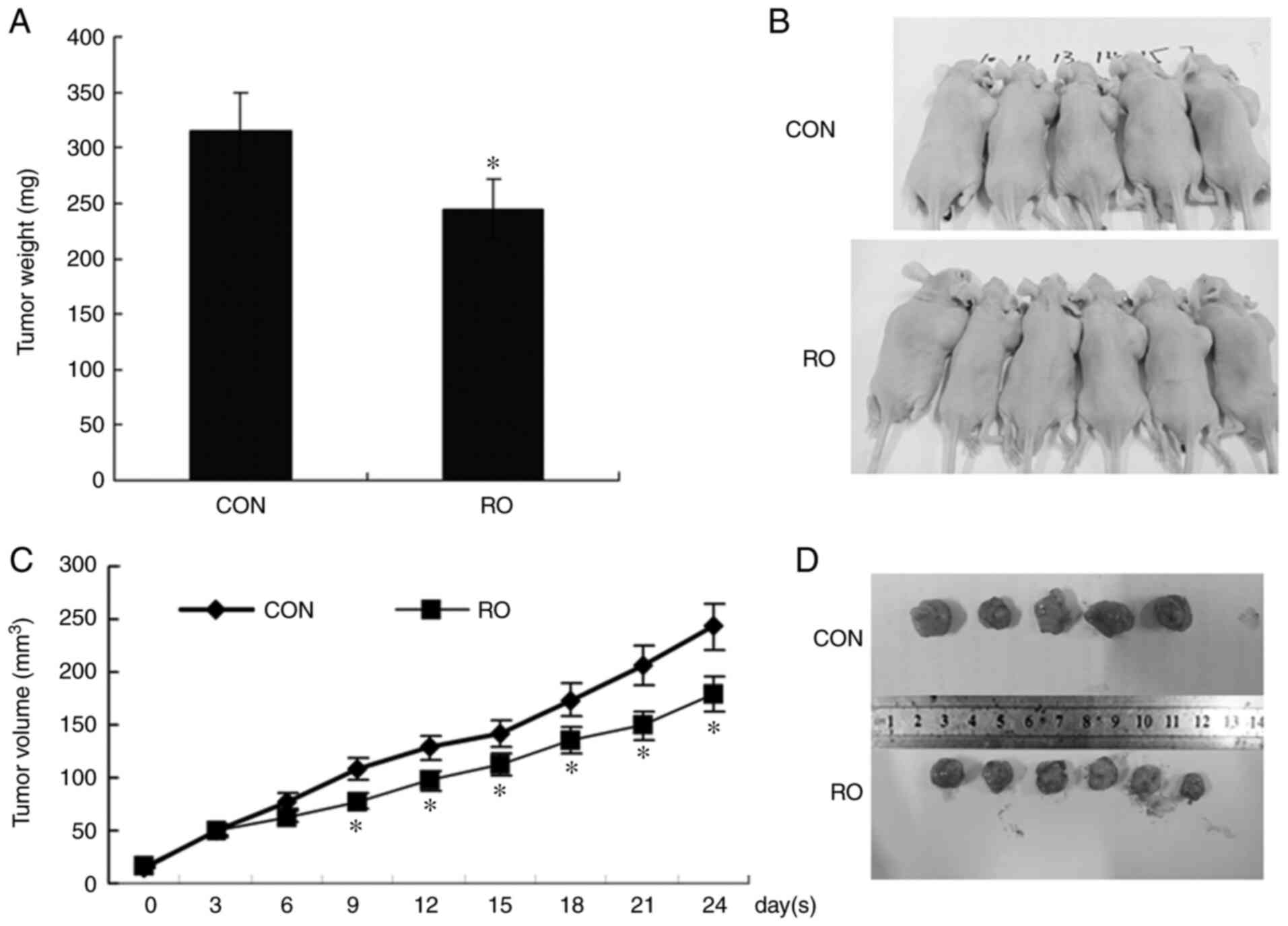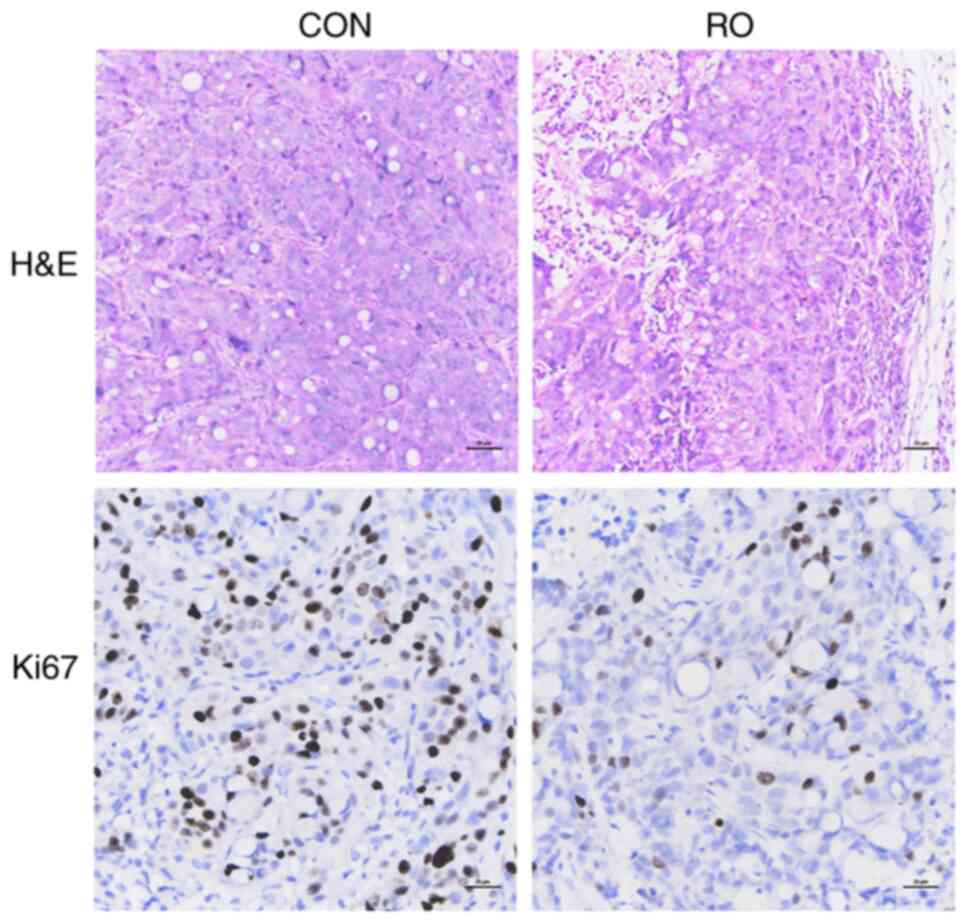|
1
|
Xiao AY, Tan MLY, Wu LM, Asrani VM,
Windsor JA, Yadav D and Petrov MS: Global incidence and mortality
of pancreatic diseases: A systematic review, meta-analysis, and
meta-regression of population-based cohort studies. Lancet
Gastroenterol Hepatol. 1:45–55. 2016. View Article : Google Scholar : PubMed/NCBI
|
|
2
|
Rahib L, Smith BD, Aizenberg R, Rosenzweig
AB, Fleshman JM and Matrisian LM: Projecting cancer incidence and
deaths to 2030: The unexpected burden of thyroid, liver, and
pancreas cancers in the United States. Cancer Res. 74:2913–2921.
2014. View Article : Google Scholar : PubMed/NCBI
|
|
3
|
Siegel RL, Miller KD and Jemal A: Cancer
Statistics, 2017. CA Cancer J Clin. 67:7–30. 2017. View Article : Google Scholar : PubMed/NCBI
|
|
4
|
American Cancer Society, . Cancer Facts
& Figures 2017. American Cancer Society; 2017
|
|
5
|
Makohon-Moore A and Iacobuzio-Donahue CA:
Pancreatic cancer biology and genetics from an evolutionary
perspective. Nat Rev Cancer. 16:553–565. 2016. View Article : Google Scholar : PubMed/NCBI
|
|
6
|
Kleeff J, Korc M, Apte M, La Vecchia C,
Johnson CD, Biankin AV, Neale RE, Tempero M, Tuveson DA, Hruban RH
and Neoptolemos JP: Pancreatic cancer. Nat Rev Dis Primers.
2:160222016. View Article : Google Scholar : PubMed/NCBI
|
|
7
|
Von Hoff DD, Ervin T, Arena FP, Chiorean
EG, Infante J, Moore M, Seay T, Tjulandin SA, Ma WW, Saleh MN, et
al: Increased survival in pancreatic cancer with nab-paclitaxel
plus gemcitabine. N Engl J Med. 369:1691–1703. 2013. View Article : Google Scholar : PubMed/NCBI
|
|
8
|
Vaccaro V, Sperduti I and Milella M:
FOLFIRINOX versus gemcitabine for metastatic pancreatic cancer. N
Engl J Med. 365:768–769. 2011. View Article : Google Scholar : PubMed/NCBI
|
|
9
|
Morrison AH, Byrne KT and Vonderheide RH:
Immunotherapy and prevention of pancreatic cancer. Trends Cancer.
4:418–428. 2018. View Article : Google Scholar : PubMed/NCBI
|
|
10
|
Guillaumond F, Bidaut G, Ouaissi M,
Servais S, Gouirand V, Olivares O, Lac S, Borge L, Roques J, Gayet
O, et al: Cholesterol uptake disruption, in association with
chemotherapy, is a promising combined metabolic therapy for
pancreatic adenocarcinoma. Proc Natl Acad Sci. 112:2473–2478. 2015.
View Article : Google Scholar : PubMed/NCBI
|
|
11
|
Chen H, Qin S, Wang M, Zhang T and Zhang
S: Association between cholesterol intake and pancreatic cancer
risk: Evidence from a meta-analysis. Sci Rep. 5:82432015.
View Article : Google Scholar : PubMed/NCBI
|
|
12
|
Sumi S, Beauchamp RD, Townsend CM Jr,
Uchida T, Murakami M, Rajaraman S, Ishizuka J and Thompson JC:
Inhibition of pancreatic adenocarcinoma cell growth by lovastatin.
Gastroenterology. 103:982–989. 1992. View Article : Google Scholar : PubMed/NCBI
|
|
13
|
Neoptolemos JP, Palmer DH, Ghaneh P,
Psarelli EE, Valle JW, Halloran CM, Faluyi O, O'Reilly DA,
Cunningham D, Wadsley J, et al: European study group for pancreatic
cancer. Comparison of adjuvant gemcitabine and capecitabine with
gemcitabine monotherapy in patients with resected pancreatic cancer
(ESPAC-4): A multicentre, open-label, randomised, phase 3 trial.
Lancet. 389:1011–1024. 2017. View Article : Google Scholar : PubMed/NCBI
|
|
14
|
Ikonen E: Cellular cholesterol trafficking
and compartmentalization. Nat Rev Mol Cell Biol. 9:125–138. 2008.
View Article : Google Scholar : PubMed/NCBI
|
|
15
|
Cuccioloni M, Bonfili L, Mozzicafreddo M,
Cecarini V, Scuri S, Cocchioni M, Nabissi M, Santoni G, Eleuteri AM
and Angeletti M: Mangiferin blocks proliferation and induces
apoptosis of breast cancer cells via suppression of the mevalonate
pathway and by proteasome inhibition. Food Funct. 7:4299–4309.
2016. View Article : Google Scholar : PubMed/NCBI
|
|
16
|
Yeganeh B, Wiechec E, Ande SR, Sharma P,
Moghadam AR, Post M, Freed DH, Hashemi M, Shojaei S, Zeki AA and
Ghavami S: Targeting the mevalonate cascade as a new therapeutic
approach in heart disease, cancer and pulmonary disease. Pharmacol
Ther. 143:87–110. 2014. View Article : Google Scholar : PubMed/NCBI
|
|
17
|
Kato S, Liberona MF, Cerda-Infante J,
Sánchez M, Henríquez J, Bizama C, Bravo ML, Gonzalez P, Gejman R,
Brañes J, et al: Simvastatin interferes with cancer ‘stem-cell’
plasticity reducing metastasis in ovarian cancer. Endocr Relat
Cancer. 25:821–836. 2018. View Article : Google Scholar : PubMed/NCBI
|
|
18
|
Charlton-Menys V and Durrington PN:
Squalene synthase inhibitors: Clinical pharmacology and
cholesterol-lowering potential. Drugs. 67:11–16. 2007. View Article : Google Scholar : PubMed/NCBI
|
|
19
|
Morand OH, Aebi JD, Dehmlow H, Ji YH,
Gains N, Lengsfeld H and Himber J: RO 48-8.071, a new
2,3-oxidosqualene: Lanosterol cyclase inhibitor lowering plasma
cholesterol in hamsters, squirrel monkeys, and minipigs: Comparison
to simvastatin. J Lipid Res. 38:373–390. 1997. View Article : Google Scholar : PubMed/NCBI
|
|
20
|
Liang Y, Mafuvadze B, Aebi JD and Hyder
SM: Cholesterol biosynthesis inhibitor RO 48-8071 suppresses growth
of hormone-dependent and castration-resistant prostate cancer
cells. Onco Targets Ther. 9:3223–3232. 2016.PubMed/NCBI
|
|
21
|
Liang Y, Besch-Williford C, Aebi JD,
Mafuvadze B, Cook MT, Zou X and Hyder SM: Cholesterol biosynthesis
inhibitors as potent novel anti-cancer agents suppression of
hormone-dependent breast cancer by the oxidosqualene cyclase
inhibitor RO 48-8071. Breast Cancer Res Treat. 146:51–62. 2014.
View Article : Google Scholar : PubMed/NCBI
|
|
22
|
Gopalan A, Yu W, Sanders BG and Kline K:
Simvastatin inhibition of mevalonate pathway induces apoptosis in
human breast cancer cells via activation of JNK/CHOP/DR5 signaling
pathway. Cancer Lett. 329:9–16. 2013. View Article : Google Scholar : PubMed/NCBI
|
|
23
|
Maione F, Oliaro-Bosso S, Meda C, Di
Nicolantonio F, Bussolino F, Balliano G, Viola F and Giraudo E: The
cholesterol biosynthesis enzyme oxidosqualene cyclase is a new
target to impair tumour angiogenesis and metastasis dissemination.
Sci Rep. 5:90542015. View Article : Google Scholar : PubMed/NCBI
|
|
24
|
Sun Y, Liu WZ, Liu T, Feng X, Yang N and
Zhou HF: Signaling pathway of MAPK/ERK in cell proliferation,
differentiation, migration, senescence and apoptosis. J Recept
Signal Transduct Res. 35:600–604. 2015. View Article : Google Scholar : PubMed/NCBI
|
|
25
|
Garcia-Ruiz C, Morales A and
Fernandez-Checa JC: Statins and proteinprenylation in cancer cell
biology and therapy. Anticancer Agents Med Chem. 12:303–315. 2012.
View Article : Google Scholar : PubMed/NCBI
|
|
26
|
McTaggart SJ: Isoprenylated proteins. Cell
Mol Life Sci. 63:255–267. 2006. View Article : Google Scholar : PubMed/NCBI
|
|
27
|
Grinter SZ, Liang Y, Huang SY, Hyder SM
and Zou X: An inverse docking approach for identifying new
potential anti-cancer targets. J Mol Graph Model. 29:795–799. 2011.
View Article : Google Scholar : PubMed/NCBI
|
|
28
|
Vilimanovich U, Bosnjak M, Bogdanovic A,
Markovic I, Isakovic A, Kravic-Stevovic T, Mircic A, Trajkovic V
and Bumbasirevic V: Statin-mediated inhibition of cholesterol
synthesis induces cytoprotective autophagy in human leukemic cells.
Eur J Pharmacol. 765:415–428. 2015. View Article : Google Scholar : PubMed/NCBI
|
|
29
|
Kaldis P and Aleem E: Cell cycle sibling
rivalry: Cdc2 vs. Cdk2. Cell Cycle. 4:1491–1494. 2005. View Article : Google Scholar : PubMed/NCBI
|
|
30
|
Fan L, Cao X, Yan H, Wang Q, Tian X, Zhang
L, He X, Borjihan G and Morigen: The synthetic antihyperlipidemic
drug potassium piperate selectively kills breast cancer cells
through inhibiting G1-S-phase transition and inducing apoptosis.
Oncotarget. 8:47250–47268. 2017. View Article : Google Scholar : PubMed/NCBI
|
|
31
|
Sun Y, Sukumaran P, Varma A, Derry S,
Sahmoun AE and Singh BB: Cholesterol-induced activation of TRPM7
regulates cell proliferation, migration, and viability of human
prostate cells. Biochim Biophys Acta. 1843:1839–1850. 2014.
View Article : Google Scholar : PubMed/NCBI
|
|
32
|
Johnson GL and Lapadat R:
Mitogen-activated protein kinase pathways mediated by ERK, JNK, and
p38 protein kinases. Science. 298:1911–1912. 2002. View Article : Google Scholar : PubMed/NCBI
|
|
33
|
Shen X, Cui X, Cui H, Jin Y, Jin W and Sun
H: Geraniol and lupeol inhibit growth and promote apoptosis in
human hepatocarcinoma cells through the MAPK signaling pathway. J
Cell Biochem. 120:5033–5041. 2019. View Article : Google Scholar : PubMed/NCBI
|
|
34
|
Liu X, Yang Q, Yan J, Zhang X and Zheng M:
LncRNA MNX1-AS1 promotes the progression of cervical cancer through
activating MAPK pathway. J Cell Biochem. 120:4268–4277. 2019.
View Article : Google Scholar : PubMed/NCBI
|
|
35
|
Fang Z, Tang Y, Fang J, Zhou Z, Xing Z,
Guo Z, Guo X, Wang W, Jiao W, Xu Z and Liu Z: Simvastatin inhibits
renal cancer cell growth and metastasis via AKT/mTOR, ERK and
JAK2/STAT3 pathway. PLoS One. 8:e628232013. View Article : Google Scholar : PubMed/NCBI
|















